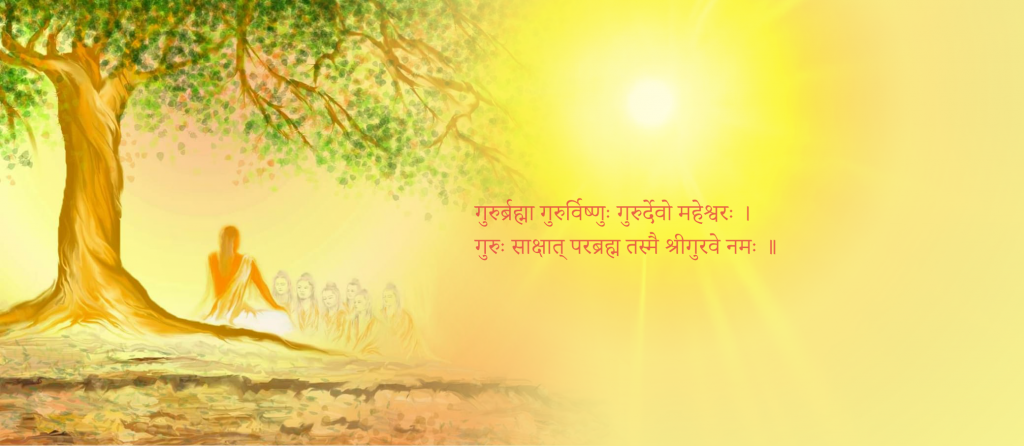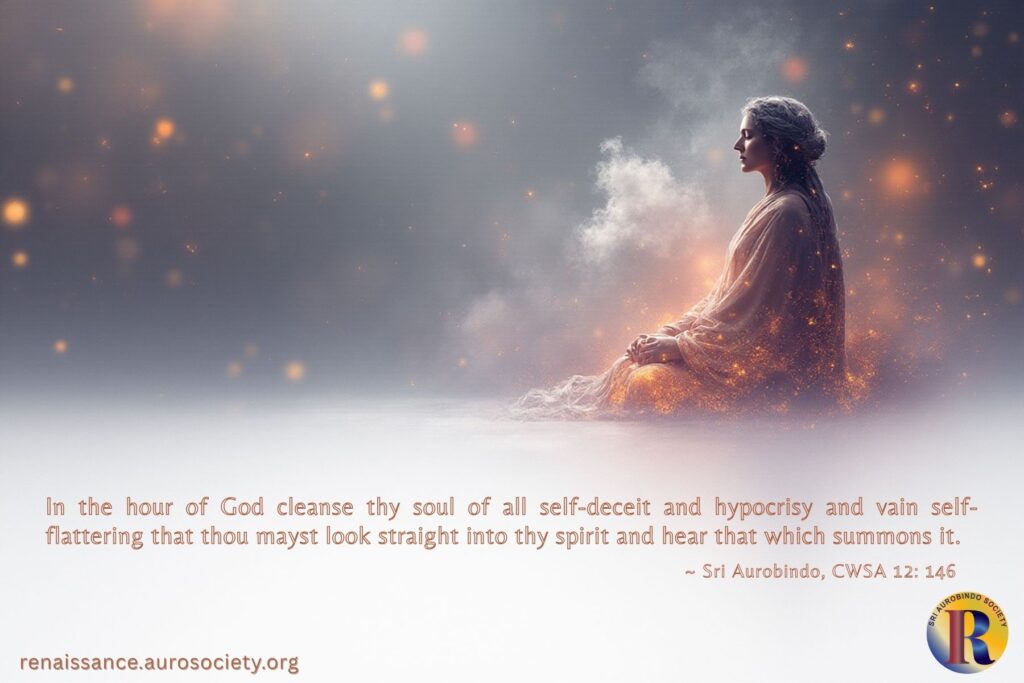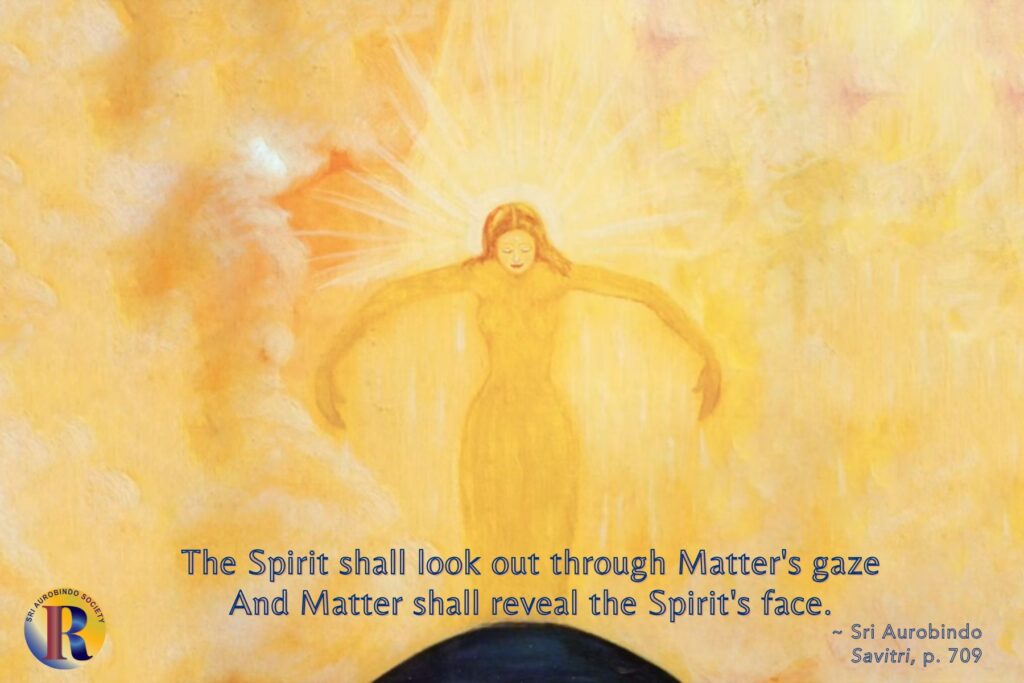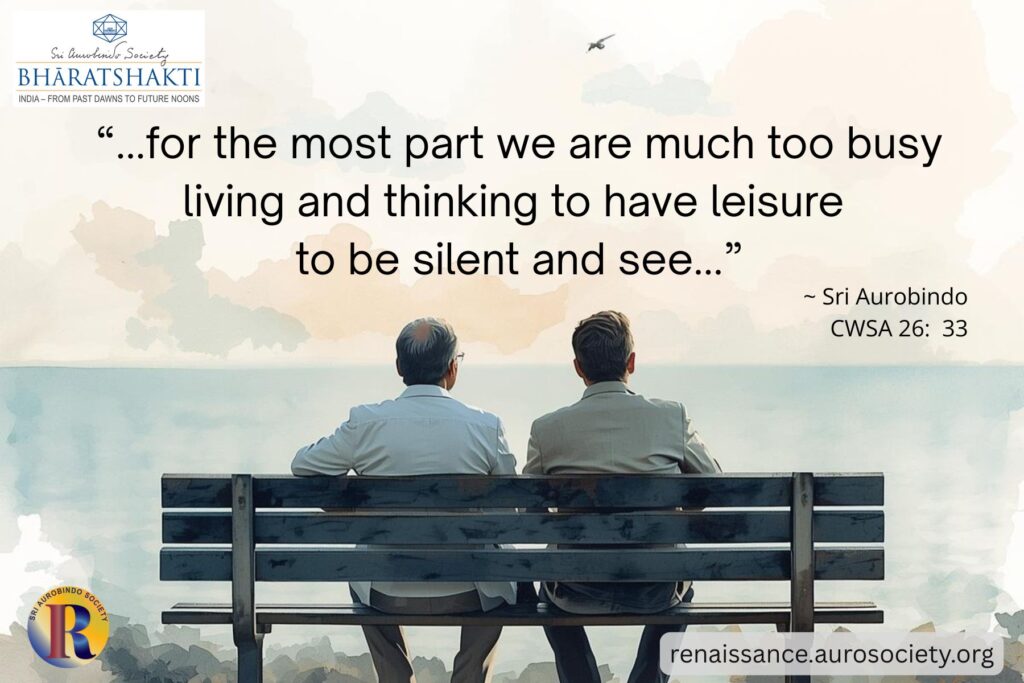Volume 1, Issue 4
Author: Sri Aurobindo
Editor’s Note: In the matter of yoga a little experience is worth much more than long dissertations. But it is also good to have a clear understanding of what has to be done and realised, of what is required and of the main lines of the process.
Like the previous letter we shared, this one was also written by Pavitra-da on behalf of Sri Aurobindo. This was written on 22nd June 1927 and was published in the 1958 issue of Sri Aurobindo Circle.


Sri Aurobindo has directed me to reply in his name to your letter.
Since you have successively followed a number of doctrines and sects, you have yourself realised that none possesses the truth which you seek; and you have no doubt understood that there is a fundamental reason for this limitation. The reality cannot be shut up within the limits of a mental system – philosophical doctrine, religious dogma or scientific theory.
Moreover, the Divine must penetrate all the parts of the being and express himself in them.
Now mind is only one of these parts. All effort, then, which aims only at an intellectual acquisition and understanding or even at an enlightenment and transformation of the mind alone is limited and incomplete.
In brief, these are the two reasons why an earnest and sincere seeker would not be satisfied with any of the mental systems and would turn away from them in search of something more which has a power of action and transformation on the whole of life; and that is what we mean by yoga.
The yoga which we follow has some key characteristics:
- It lays down the necessity of an integral transformation of the entire human being – not only of a widening of the mental consciousness – in order to enable it to manifest progressively the Divine as a power of life, consciousness, knowledge, action and Ananda. Aspiration for the transformation is the sine qua non of true yoga.
- As the intellect is incapable of seizing the Reality in its simultaneity and totality, what is indispensable is to open the inner being directly to this supra-mental Reality and base on the immediate perception of it all subsequent realisations.
- It is, therefore, necessary to bring the mind to a state of perfect silence which will allow that contact to be established. That consciousness of the supra-mental Reality, together with the capacity for silence in the mind, alone makes possible the establishment in all the parts of the human being of integral peace which is revealed as the condition and the basis of manifestation of the Divine in man.
- The human methods which aim at transforming the individual – exercises for control and mastery of the lower nature, ethical and ascetic disciplines – however useful, are powerless by themselves to bring about that complete transformation. They check, suppress or repress the impulses of nature, but are insufficient to produce a harmonious development of the being as the centre of divine consciousness and action. The Divine Himself must intervene and effectuate the transformation which He alone has the power to achieve.
- Hence the necessity of an entire offering of the individual to the Divine, an utter surrender to His action. This involves many things and its perfect realisation in all the parts of the being is difficult. One has to fight against habits, prejudices, preferences, desires, passions, etc. But in proportion as the aspiration becomes more intense and sustained and the surrender more integral, the resistances in the various parts are successively overcome and the divine force of transformation acts with more and more perfect precision and power.
Thus it should be clear to you that the urge towards the divine union is not only an intellectual effort – a desire to understand the nature of man and the universe – but centrally an aspiration of the individual determined to give himself integrally to the Divine in order to be transformed and to become a more and more pure, impersonal and perfect instrument of the Divine in the creative work of the universe.
The inner peace you speak of and aspire to so ardently should not be sought in a withdrawal from all activity and in a passive contemplation of the supra-cosmic Reality. It is there, no doubt; but it is also here behind the divine activity in the cosmos, because it is an attribute of the divine consciousness itself.
If this consciousness is brought in to inhabit and direct the perfected vehicles, then all the movements of consciousness will have as a support that ineffable peace, even in the midst of intense activity.
And it will not be just a calm serenity, a refreshing repose, a peaceful relaxation but something more, a luminous felicity, a sustaining joy, constant and invariable.
All this is, moreover, only a mental view of the problem. In the matter of yoga a little experience is worth much more than long dissertations. However, it is good – and it is especially necessary for Europeans – to have a clear understanding of what has to be done and realised, of what is required and of the main lines of the process.
I do not know whether you read English. In case you do, I would advise you to study some of the published works of Sri Aurobindo, for example, Yogic Sadhan, The Yoga and Its Objects, and then, Essays on the Gita, if you have not already read them…
For us Europeans, a great difficulty arises precisely from the intensive intellectual culture to which we have been subjected, and even when we understand and accept the necessity of a higher truth, time has to be allowed for the intellectual habits to drop off and the mind to become finally quiet.
Sri Aurobindo directs me to tell you that complete mental silence should be your first object and the meditation, if you do any, should aim towards that end. A discursive meditation or even a concentration on intellectual or ethical subjects would not lead to that result.
Aspiration must be the centre of meditation – an intense call to the Divine with the certitude that He will respond, an opening to the supramental forces. It would be good to get in touch inwardly with this place, and you can be sure that as you open yourself, you will be answered and you will receive.
Several practical methods lead to mental silence.
The one most readily employed is to detach oneself, as a simple spectator, from mental activities. Let your mind pursue its movements; do not impose on it a violent restraint, but merely observe it as you would do an outside object. Gradually you will become aware of yourself as a witness who is not affected or carried away by these movements.
Thus you will realise that you exist independently of that mind which, till then, you had considered as being your own self. Then, by the mere fact that you have withdrawn your assent and refuse to be carried away, the disturbances of the mind will become less vehement, its restlessness will diminish, its power to drag you into a habitual whirl of thoughts will disappear.
If this effort of detachment is combined with the inner call to the Divine, an offering of the entire being, an aspiration for an integral transformation – in all sincerity and completeness – and if the force of transformation, the Divine Shakti, can thus be brought into action, the results will be swift.
P. B. Saint-Hilaire (Pavitra)
(Translated from the French original by Niranjan)
Cover image: Painting by Ritam Upadhyay
digital redesign by Rishabh Sharma



